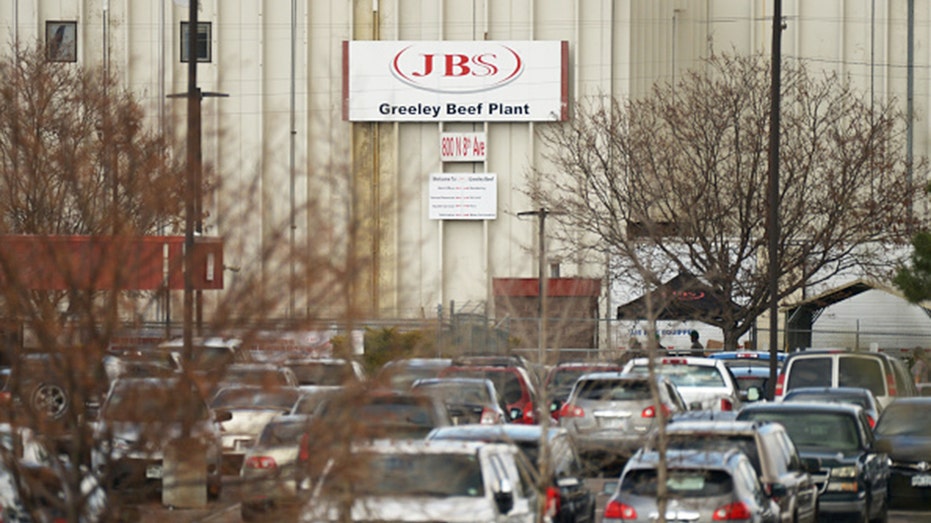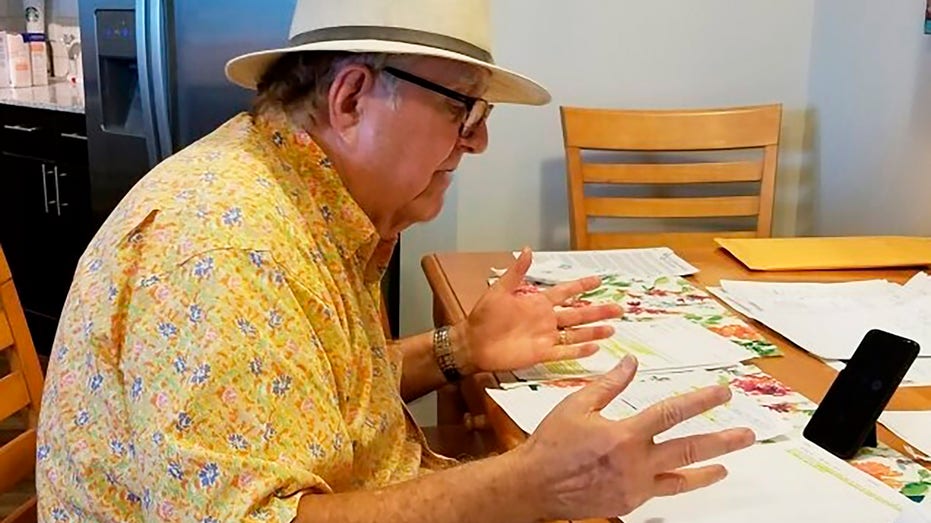Older workers grapple with risk of getting COVID-19 on the job
Markets ‘clearly have confidence’ in Trump: White House press secretary
White House Press Secretary Kayleigh McEnany credits President Trump for the current market rally.
At 78 years old, Saul Sanchez took pride in his routine: showing up before 5 a.m. at a Greeley, Colo., beef processing plant to snag a good parking space and read the Bible before his shift. After work he would shower, eat dinner and go to sleep.
Continue Reading Below
On March 19, Mr. Sanchez came home, showered and went straight to bed, his daughter said. He told family members he was tired but went to work the next day at the plant owned by JBS USA Holdings Inc. It turned out to be his last day on the processing line where he had cut meat for three decades. The following week he was hospitalized with Covid-19. Two weeks later, he died. Colorado's governor had declared a state of emergency due to the pandemic on March 10, and a national emergency declaration followed on March 13.
ARE CORONAVIRUS TEMPERATURE CHECKS EFFECTIVE?
Mr. Sanchez was the first of six employees of JBS's Greeley plant to die after being infected with the coronavirus, according to union officials. All six, including Mr. Sanchez, were 60 or older — placing them at higher risk from Covid-19, according to the Centers for Disease Control and Prevention.
In meat plants, transit terminals, post offices and other workplaces, many older workers have continued clocking in despite the heightened risk they face. In some cases, the strong work ethic of an older generation of workers kept them in harm's way, family members said, while others kept working to pay bills even after federal health authorities warned in early March that older people faced greater risk.
JBS – Greeley Beef Plant in Greeley, Colorado on Friday. April 10, 2020. (Photo by Hyoung Chang/MediaNews Group/The Denver Post via Getty Images) Many companies have enhanced their efforts to protect workers since the country began to shut down. At the same time, the risk of exposure could persist as states allow more workplaces to open. Many federal and state reopening plans say older or otherwise vulnerable residents should stay home while others go back to work. State and federal workplace safety agencies have fielded complaints from workers and advocates from at least 34 workplaces expressing concerns that older workers or employees with pre-existing health conditions weren't being properly protected from, or in some cases informed of, the coronavirus spread in the workplace, a review of a U.S. Labor Department database, with complaints made through May 28, shows. The complaints ranged from a car-parts manufacturing plant in Virginia where older workers were allegedly told they wouldn't have their jobs held if they stayed home, to a call center in California where employees, including elderly people, worked within 2 feet of one another. DOES THE U.S. HAVE ENOUGH CONTACT TRACERS? Around 80% of Covid-19 deaths in the U.S. are people 65 and older, according to the CDC. Nationwide, that age group represents 7% of the overall workforce, according to the Bureau of Labor Statistics, a share that has been growing steadily as older workers live longer, often with improved health and education, and as pensions have weakened. Some industries that stayed open through the coronavirus-related shutdowns have an especially high share of older workers. Workers 65 and older make up 12% to 16% of bus drivers, couriers, doctors and dentists, according to data compiled by the Brookings Institution. Of 116 deaths from Covid-19 complications reported by two unions that represent bus drivers and other transit workers in which The Wall Street Journal could identify ages, 19 were 65 and older, 30 were in their early 60s and most others were in their 50s. It can be difficult if not impossible to determine how and where someone gets sick. Harold Pogar, 68, in March continued driving his route of 10 years as a commuter bus driver from Annapolis, Md., to Washington, D.C., every day. He had wanted to retire years earlier alongside his wife, she said, but they were in debt and needed him to keep earning money. In this April 27, 2020 photo provided by Luckie, Bob Coleman records audio for the “Radio Recliner” show at Somerby Franklin in Franklin, Tenn. ( Luckie via AP) In late March, he told his wife, Janet Pogar, about a passenger who had been coughing frequently on the bus, but he said he figured his odds of contracting the coronavirus were low. A few days later he began to have symptoms that he chalked up to a sinus infection, but they worsened and he eventually tested positive for the coronavirus, according to his wife. On April 10, he died. Ms. Pogar said she also got Covid-19. She had talked to her husband about not going into work. "I said, you're in the high-risk factor group, " she recalled. "He trusted other people would be just as careful as he was." A Coach USA Inc. spokesman said the company has been properly addressing coronavirus risks by distributing hand sanitizer and disinfectant wipes and cleaning and disinfecting buses nightly. A few days after Mr. Pogar's death, the company began handing out cloth masks to drivers, the spokesman said, adding that safety of employees and passengers is the company's top priority. The family of Theodore Nixon, a 63-year-old mechanic for Philadelphia's Septa transit system, said they would have urged him not to go to work if they had known the risks of infections spreading in the workplace. Mr. Nixon started to show signs of the disease on March 20, with a fever, cough and shortness of breath. He died March 30. Willie Brown, president of the Transport Workers Union local that represents Septa workers, said the authority knew of Mr. Nixon's illness and initially failed to warn other workers. In total, 14 workers at the same transit depot tested positive for the virus, according to the authority. A Septa spokeswoman said the authority has followed detailed protocols that include notifying co-workers of those who have tested positive for the coronavirus. At the JBS plant in Greeley, about an hour north of Denver, roughly 3,200 workers process about 6,000 cattle a day. Of the plant's workers, 224 are between 60 and 70 years old, according to local United Food and Commercial Workers International Union officials, and 37 are, like Mr. Sanchez was, over 70. Born in Zacatecas, Mexico, Mr. Sanchez went to work at the Greeley plant about 30 years ago, after bringing his family to Colorado for the care of his then-5-year-old daughter, who was sick with renal failure, according to his daughter, Beatriz Rangel. Some younger co-workers at the plant called him "Papa." After the CDC warned that people 60 and older were at greater risk of complications from the coronavirus, Kim Cordova, president of the local UFCW union chapter, asked JBS on March 18 to find ways to accommodate high-risk workers, as identified by the CDC. GET FOX BUSINESS ON THE GO BY CLICKING HERE On March 20, JBS offered paid leave for employees 70 years or older, according to a company spokesman. He said the company has adhered to and frequently exceeded CDC guidelines, and has expanded its policy to cover employees 60 and older, or about 11% of JBS USA's workforce. The Weld County Department of Public Health and Environment in an April 4 letter said an investigation found a perception of a "work while sick" culture at the Greeley JBS plant among some employees. READ MORE ON FOX BUSINESS BY CLICKING HERE The department's review of cases at the time showed that 64% of workers who tested positive for Covid-19 had worked while symptomatic and were contagious to others, according to the report. JBS disputes the health officials' characterization of the plant's culture, the spokesman said. He pointed to other assessments, including an April 20 memo after a CDC visit to the plant that didn't mention a work-while-sick culture. JBS began shutting down the plant April 13, after discussions with state health officials. It reopened about two weeks later with partitions between workstations, a new ventilation system and on-site testing. Ms. Rangel said she and her siblings had pleaded with Mr. Sanchez for years to retire. At one point, she said, he talked about retiring in October 2019, but decided instead to keep working until October 2020 — when he would have turned 79. "He said, 'I'll be bored, honey,' " Ms. Rangel said. "To him, having a job and going to work was a privilege." Source: Read Full Article


